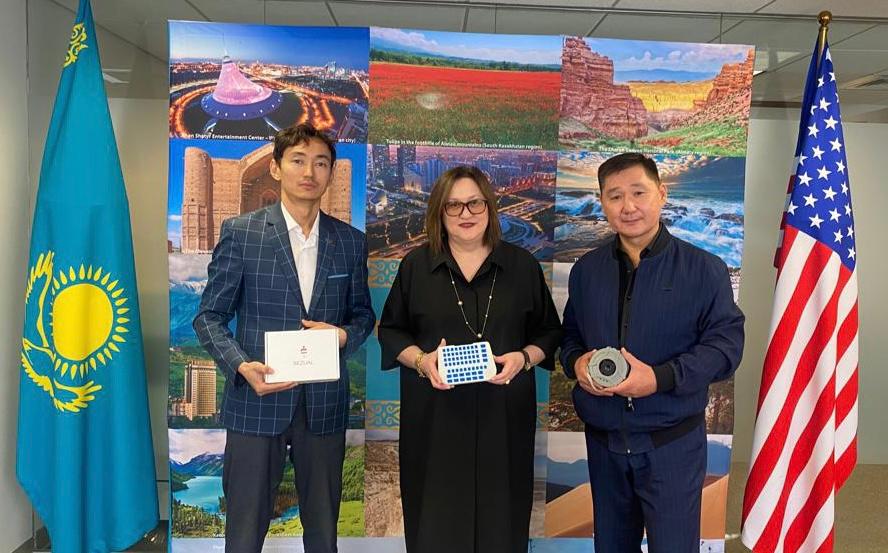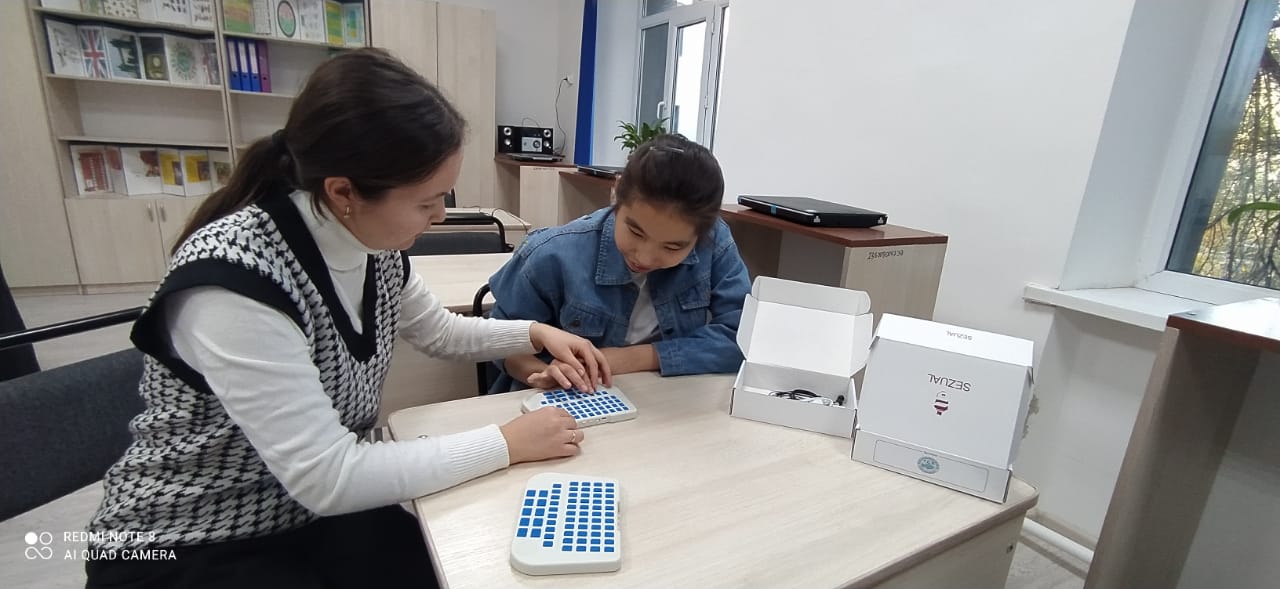ASTANA – Sezual Company has introduced an innovative musical tutorial device designed to enhance the quality of life for individuals with low vision. This inventive solution aims to improve accessibility and inclusivity in music education.

From left to right: Nurbek Yensebayev, Sezual Company Partner. Raushan Esbulatova, Honorary Consul of Kazakhstan in New York. Galimzhan Gabdreshov, Kazakh scientist and inventor. Photo credit: Sezual team archive.
Moving from Braille tutorials to musical education
“The idea for creating a music tutorial emerged after speaking with children who wanted to learn music. After successfully implementing Braille language tutorials for over two years, we found inspiration for this new project,” said Nurbek Yensebayev, Sezual Company Partner, in an interview with The Astana Times.

Photo credit: Sezual team archive.
Students typically spend around four years learning Braille as teachers guide their fingers to Braille-embossed keys. This method involves tactile identification through small raised dots, and if students lose their place, the teacher must repeat the process.
“The unique aspect of our Braille language device was its gamified, automated approach, enabling students to touch and memorize Braille markers while hearing corresponding audio feedback. This approach reduces the learning time from four years to just one or two months,” said Yensebayev.
According to Yensebayev, the success of the Braille devices led to requests from children and parents to develop a device that not only facilitated language and reading but also enabled them to play music.
“It prompted us to develop musical tutorials that accommodate various musical instruments, such as keyboards, wind, and string instruments. We are currently preparing five generations of these devices for production, allowing each child to choose their area of interest in musical literacy and instrument playing,” he said.
Key features of the musical device
During the development process, the Sezual team collaborated with Margarita Adilova, the sole visual impairment specialist with a musical education at Ostrovsky Special Boarding School for blind and visually impaired children in Almaty.
The device is designed to teach children to read notes in different octaves while enhancing their hearing, sense of rhythm, duration of sound, and beat. When a key is pressed initially, it produces a musical note. Upon pressing the key again, the corresponding Braille notation for that note is announced. This system mirrors the one previously employed in the company’s language tutorials.
Yensebayev emphasized that the device fosters musical literacy and instrumental skills and serves as a cognitive exercise, particularly beneficial for children with coexisting conditions such as cerebral palsy, autism, memory delay, and speech disorders. Music can help with socialization and psychological development, addressing various developmental needs.
“Our device empowers individuals to autonomously acquire musical literacy and proficiency in playing musical instruments. It includes a basic set of notes in four keys, written in Braille, and guides students in reading music books. This means that children can accurately identify notes by hearing them, enhancing their musical literacy,” he said.
Development process and plans
The team has developed the first model of this self-instruction manual. They are working on learning algorithms for visual impairment specialists, including those without musical backgrounds, and creating instructions for device use. Sezual’s ongoing work includes mobile platform and application development, enabling specialists to share their knowledge worldwide remotely.
“We are also striving to improve the device for individuals who wish to advance from basic musical knowledge to a professional level and transfer their skills to musical instruments,” said Yensebayev.
The company has expanded its reach, collaborating with a school for the blind and visually impaired in Texas. Their work primarily focuses on the B2G and B2B sectors, which involve partnerships with companies and government entities to support individuals.
“We also plan to use international organizations’ mechanisms to implement inventions that enhance the quality of life for visually impaired individuals worldwide,” said Yensebayev.


